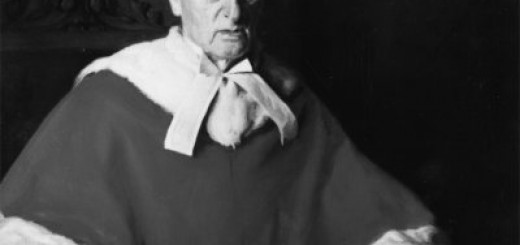Judicial Autobiography: How much do we want to know about sitting justices?
United States Supreme Court Justice Clarence Thomas recently published an autobiography, entitled My Grandfather’s Son, and promoted the book with lengthy, public interviews on ABC. He is not the first sitting U.S. Supreme Court Justice to publish an autobiography, but I was surprised by the sense of disquiet I felt when thinking about a sitting judge writing openly about his life and views. I have tried to assess what it is, precisely, that makes me uncomfortable about judicial autobiography, and whether that discomfort is justified.
The main issue, for me, is the impact the autobiography of a sitting justice has on the perceived objectivity of that justice. An autobiography will likely reveal at least some of an individual’s beliefs, opinions, ideology and partisanship – and these in turn may give rise to the apprehension of bias. For example, in My Grandfather’s Son, Justice Thomas speaks disdainfully of leftist ideology and his experience in the country’s Northern States:
I’d grown up fearing the lynch mobs of the Ku Klux Klan; as an adult I was starting to wonder if I’d been afraid of the wrong white people all along — where I was being pursued not by bigots in white robes, but by left-wing zealots draped in flowing sanctimony.
But perhaps my perspective as a Canadian is skewed. After all, the fact that ideology plays a role in judicial decision–making is hardly novel to anyone with even a passing acquaintance with the U.S. Supreme Court. Political allegiances factor prominently into decisions about appointments. The Supreme Court is frequently split along party lines. Justice Thomas’ openness is at first glance surprising (certainly his comparison of left-wing “zealots” to Klu Klux Klan members might cause some consternation) but at the same time, it is not news that Justice Thomas is an outspoken critic of left-wing politics, or that he believes that affirmative action is an instrument of white individuals to continue the oppression of African Americans.
Uncomfortable as I am with the U.S.’s embrace of the idea that ideology has a place on the bench, perhaps there is a sense in which the U.S.’s system is a more forthright embrace of legal realism. I do believe that law is indeterminate, and that judges must always draw on some extra-legal considerations in resolving disputes. Individuality does play a role in decision-making. By openly declaring their politics, and in some situations, sharing their life stories, do U.S. judges strip away some of the mystery of the judiciary, leaving it more open (and perhaps accountable) to the public? Is it only right that the public should know something more about the identity and personality of unelected supreme court justices who hold such power?
That belief is, in part, the basis for the new judicial appointment process in Canada. It is an issue that has been discussed here at TheCourt.ca before: click here for Corey Wall’s assessment of our new appointment process and here for Benjamin Alarie’s review of his recent study (conducted with Andrew Green) on the influence of ideology on judges and how judges’ policy preferences change over time. But regardless of whether Canada has anything to fear from a more politicized court, I still cannot shake the feeling of unease I have about a sitting Supreme Court Justice coming out with his memoirs – even if those memoirs do end with his appointment to the bench, and thus leave out any discussion of his decisions on the bench. The perception of impartiality is as important as true impartiality (or as close as any human can get) to public confidence in the judicial system, and Justice Thomas comes across as anything but impartial in his autobiography, particularly in his bitter discussion of the battle over his appointment. The niggling question of financial gain is also hard to shake – openness, in this case, was worth $1.5 million to Justice Thomas.






Join the conversation